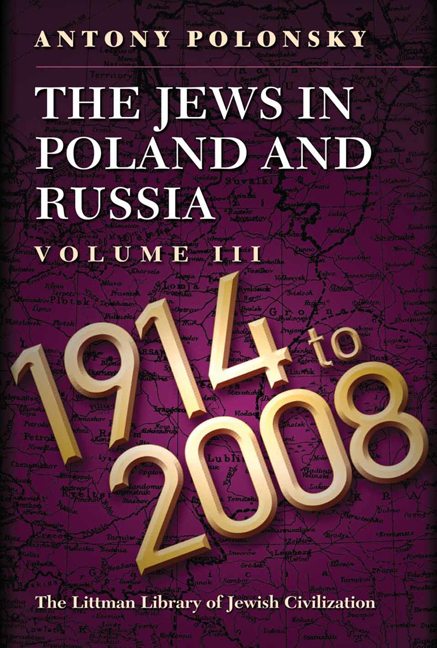Book contents
- Frontmatter
- Dedication
- Acknowledgements
- Contents
- List of Maps
- List of Tables
- Note on Transliteration
- Note on Place Names
- Maps
- General Introduction
- PART I FROM THE FIRST WORLD WAR TO THE SECOND
- PART II WAR AND GENOCIDE, 1939–1944
- PART III FROM THE END OF THE SECOND WORLD WAR TO THE COLLAPSE OF THE COMMUNIST SYSTEM
- EPILOGUE JEWS IN EASTERN EUROPE AND RUSSIA SINCE THE END OF COMMUNISM
- Conclusion
- Glossary
- Bibliography
- Index
16 - From the Death of Stalin to the Invasion of Czechoslovakia
- Frontmatter
- Dedication
- Acknowledgements
- Contents
- List of Maps
- List of Tables
- Note on Transliteration
- Note on Place Names
- Maps
- General Introduction
- PART I FROM THE FIRST WORLD WAR TO THE SECOND
- PART II WAR AND GENOCIDE, 1939–1944
- PART III FROM THE END OF THE SECOND WORLD WAR TO THE COLLAPSE OF THE COMMUNIST SYSTEM
- EPILOGUE JEWS IN EASTERN EUROPE AND RUSSIA SINCE THE END OF COMMUNISM
- Conclusion
- Glossary
- Bibliography
- Index
Summary
We sat by the radio night and day, listening to the ‘Voice of Israel’ … Soviet Jews rejoiced, congratulated each other. ‘Our people are on the offensive!’ With the life of Israel imperilled, a great many Russian Jews made a choice: ‘Israel is our family; Russia is at best a distant relative, if not a total stranger.’
ESTHER MARKISH, The Long Return, 1978In the train to Vienna today Rachela is leaving
From the Gdańsk Station near the Umschlagplatz.
Today in our country many meetings were held
Scores of resolutions were passed and thousands of letters demanded
That our literature be purged of Zionists.
Vox populi, vox dei. The people must be heard.
And so Rachela from Bronowice is leaving behind the wedding
With her father, Dr Szuman, and with old Jankiel, her grandfather.
NATAN TENENBAUM, ‘At the Gdańsk Station’, 1969THE SOVIET UNION FROM STALIN TO THE INVASION OF CZECHOSLOVAKIA
THE DEATH of Stalin, although it put an end to the extreme forms of terror of his last years, did not alter the basic features of the system he had established: the monopolistic rule of the party through the Politburo and the Central Committee. Given that all his immediate successors had owed their careers to Stalin's ‘Great Turn’, this is not surprising, but the over-centralized nature of the political system, and the destructive effects of one-man dictatorship and the terror that had accompanied it, made it obvious that some reform was necessary. As a result, the period from 1953 to the collapse of the Soviet Union and the end of communist rule in 1991 was marked by tension resulting from the conflicting imperatives of maintaining the internal cohesiveness of the totalitarian system while attempting to reform it. The Soviet Union controlled an empire, and one of the problems the reformers faced was that calls for the modification of the system at the imperial centre were likely to precipitate uncontrollable change at the periphery, as occurred in East Germany in 1953, in Hungary in 1956, and in Czechoslovakia in 1968.
In addition, the system operated in the bipolar post-war world divided between two ideological camps.
- Type
- Chapter
- Information
- The Jews in Poland and RussiaVolume III: 1914 to 2008, pp. 654 - 707Publisher: Liverpool University PressPrint publication year: 2012

